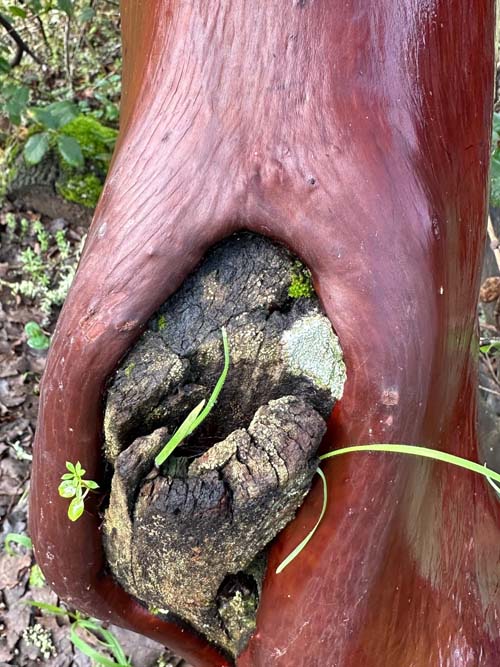
Everything grows out of everything else.
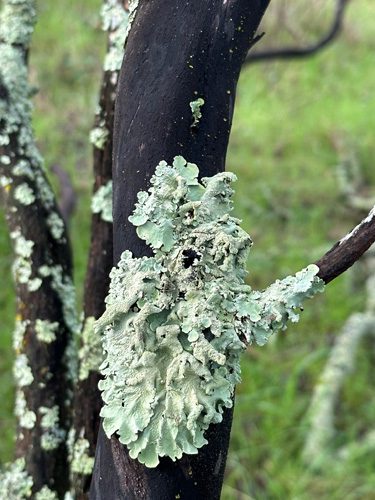
The numinous moss nestles in crevices of muscular manzanita trees,
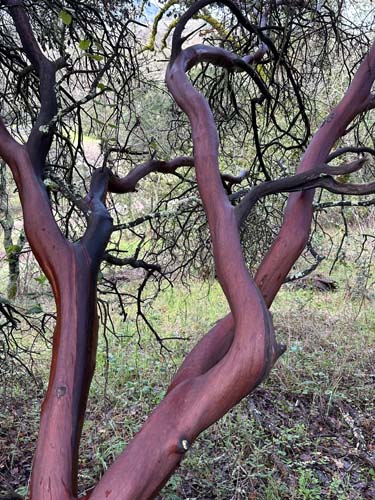
their sinewy limbs leaning to sunlight with such taut elegance that its easy to imagine them as Yakshis, tree spirits just waiting for me to complete my foray into their sacred groves
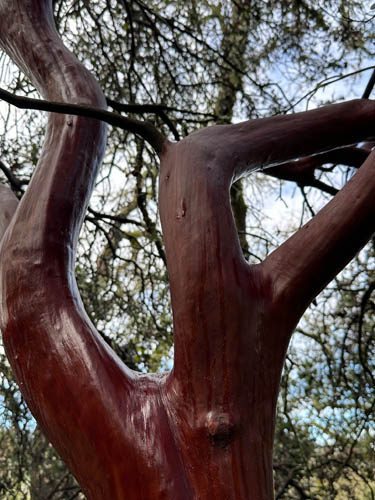
so that they can link their angular elbows and go back to long legged leaping like arboreal olympians vaulting towards heaven.
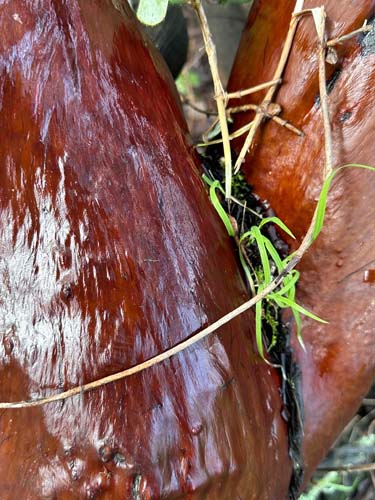
Winter on the west Coast of North America is the realm of rain. Water wraps its liquid balm around me as I walk in the forest. A shawl that knows no borders.
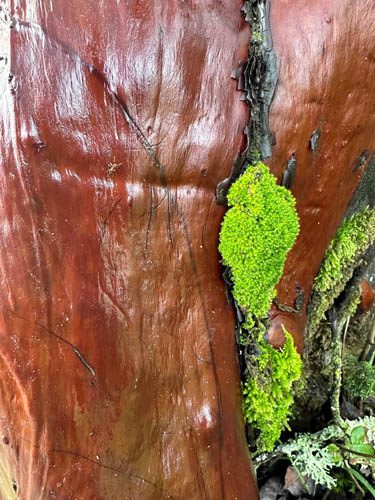
Madrone trees are the magical mysterious revered elders of this forest. It’s also increasingly rare to find them. In a forest of thousands of oaks you might chance upon one or two.
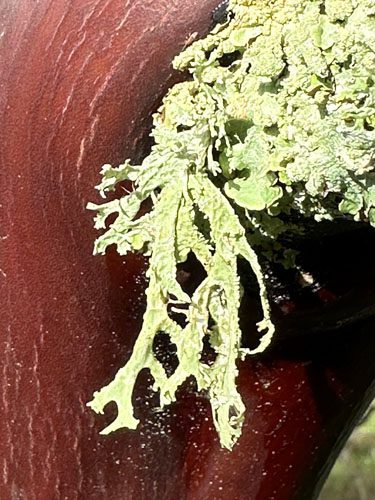
According to a legend of the indigenous Salish coast people, “the tree’s webbed roots hold the splintered earth together. If it should disappear, the myth warns , “the planet would fly apart and be utterly destroyed.”
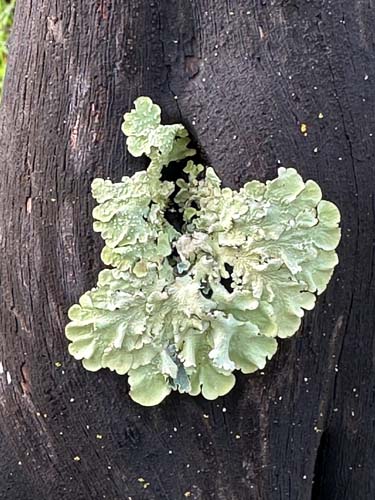
The Salish recount the story of the Great Flood when the whispering waters turned louder and threatened to swallow the earth in their mouth.
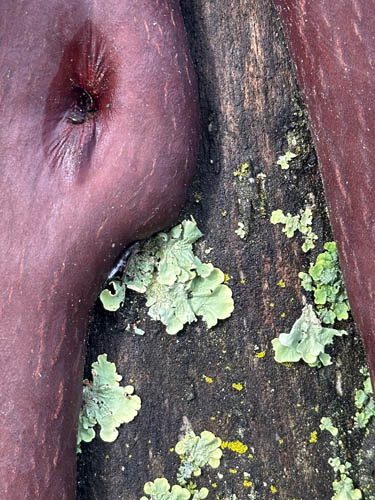
They describe how the Madrone provided an anchor for their canoes to hold steady and not drift away. To this day, they don’t use the Madrone tree as firewood.
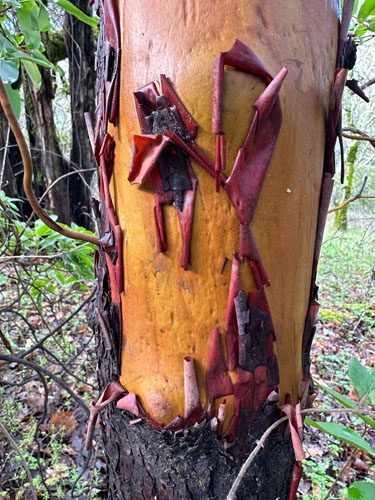
Madrone bark changes color to reflect the entire gamut of skin tones, from pale white to jet black and every shade in between.
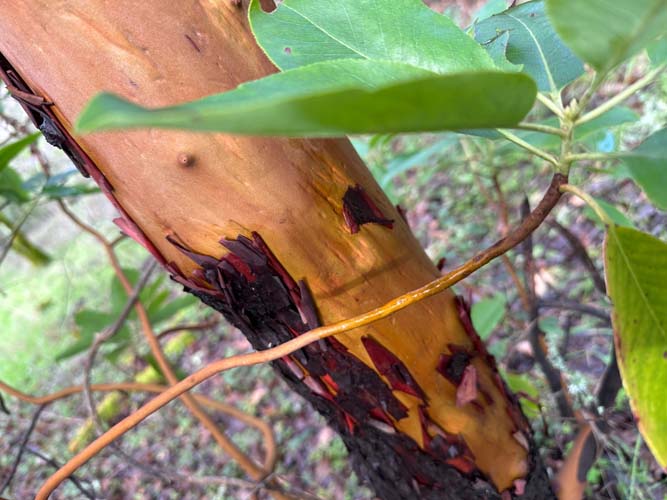
The evergreen madrones are constantly shedding their skin, the older, darker wrinkly bark peels off to reveal youthful bright smooth layers, a feat rendered even more enviable by the unique ability of this new bark to generate chlorophyll.
I move through the forest thinking about osmosis and hunger, the hunger of the madrone unabashedly dropping its skin to feed; it feels like an erotic act, like lovers joyously stripping naked to feast on each other’s bodies.
The other party to this act, sunlight, arrives unclothed and lays a soft buttery finger on my starving lips.
Sophia Naz is a bilingual poet, artist, author, and translator. She has been nominated twice for the Pushcart Prize; in 2016 for creative nonfiction and in 2018 for poetry. Her work has featured in numerous literary journals and anthologies including Poetry Daily, The Penguin Book of Modern Indian Poets, The Night Heron Barks, Singing in the Dark:A Global Anthology of Poetry Under Lockdown, Berfrois,The Bombay Literary Magazine, Rattle, The Punch Magazine, Poetry At Sangam, The Adirondack Review, The Wire, Chicago Quarterly Review, Blaze Vox, Scroll, Cafe Dissensus, RAIOT, Ideas And Futures, Chapati Mystery, Guftugu, Pratik, Gallerie International, Coldnoon, VAYAVYA, The Bangalore Review, Papercuts, Madras Courier, The Yearbook of Indian Poetry and many others. She has authored the poetry collections; Peripheries (Cyberhex 2015), Pointillism (Copper Coin 2017) Date Palms (City Press 2017) Open Zero (Yoda Press 2021), and Shehnaz, a biography (Penguin Random House 2019). Bark Archipelago ( Weavers Press, San Francisco & Red River India 2023) is her fifth collection of poetry.

Subscribe to our newsletter To Recieve Updates
Join our newsletter to receive updates